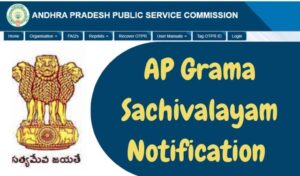What Are Trade Schools also called vocational schools, provide students with specialized training that prepares them for specific career fields. These schools offer hands-on training and education in areas such as plumbing, electrician work, dental hygiene, veterinary technology.Professionals who attend trade school are equipped with the skills necessary to excel in their chosen field. They are trained to perform tasks that require a higher level of technical expertise than what is offered in a traditional academic program. The benefits of attending a trade school include learning industry-specific skills from experienced professionals, practical training that can be applied directly to the job, and potentially earning higher salaries than those without specialized training.
Trade school programs are specialized and cost-effective alternatives to traditional four-year colleges and universities. They offer hands-on training that prepares students for specific careers in a shorter timeframe. Trade schools typically offer programs in areas such as welding, plumbing, electrical work, automotive repair, and healthcare. These programs can range from a few months to two years depending on the field of study. Online trade schools have also become increasingly popular due to their convenience and flexibility. When choosing a trade school program, it is important to consider factors such as accreditation, job placement rates, and the reputation of the institution.
Outlines Of Guide
ToggleWhat Is the Difference Between Trade School and College?
When it comes to education, trade school and college have several differences. The most significant difference is that trade school coursework is focused on training students for specific careers, while college courses aim to provide students with a broad range of skills and knowledge. Trade schools offer hands-on training in specialized fields such as welding, carpentry, or plumbing, whereas colleges provide more theoretical and academic education. While both types of education have their own advantages and disadvantages, choosing the right path depends on an individual’s career goals and preferences. Trade school can be a great option for those looking for a quick entry into a specific industry, while college can provide a more comprehensive education that opens doors to various career opportunities.
One of the key differences between a traditional four-year college and trade school education is the supplemental courses required. History majors in a four-year college are often required to take classes in math, sciences, English, and other subjects that may not directly relate to their major. On the other hand, trade school students are only required to enroll in courses related to their field of study. For instance, those learning how to become a plumber will only take classes related to plumbing installation, maintenance, extension, and alteration. This allows trade school students to focus solely on developing the skills they need for their chosen profession without any distractions.
What To Expect When Starting Trade School
As a student at a trade school, here’s what you can anticipate.
Learning Will Be Hands-On
Extensive hands-on training is essential for skilled trades. While you may gain some knowledge of history and theory in your field of interest, the focus will mostly be on practical work under the guidance of your instructors. Anticipate engaging in practical learning and laboratory sessions throughout your vocational training. For instance, aspiring mechanics gain hands-on experience with authentic automotive brake systems commonly found in a car repair shop. Similarly, students pursuing cosmetology acquire skills in hair cutting, styling, modern nail techniques, and facial application through in-person instruction.
Instructors, with years of experience in their respective trades, showcase the different techniques and skills that graduates will require in the workplace. The majority of colleges and universities do not implement this hands-on learning approach to the same degree. Although some college courses include laboratory work, this usually takes place only two or three times per week.
There May Be Structured Class Days
In a four-year college, students typically have an inconsistent schedule. Their days may be filled with club meetings, studying, and napping in between classes. Unlike a typical workday, college students do not follow the same routine every day. This lack of consistency can make it challenging for students to create a structured routine that allows them to balance their academic and personal lives effectively. However, by implementing time management strategies such as creating a daily schedule and prioritizing tasks, students can make the most of their time in college and achieve their goals.
Trade school courses are typically more structured and demanding than a college education. Students can anticipate daily classes from 8 a.m. to 3 p.m., with limited opportunities for extracurricular activities. This intensive schedule aims to ensure program completion within two years, a shorter timeframe compared to traditional four-year college programs. Trade schools focus on preparing students for in-demand skilled trades by maximizing their school time, providing hands-on training, and facilitating apprenticeships for practical experience.
Trade schools understand the need for flexible learning options and offer night classes. This allows students to work during the day and study in the evening. Night classes are especially helpful for those with family or daytime commitments. By offering this option, trade schools can attract a diverse range of students who may not have been able to attend school otherwise. Additionally, it helps students save money by allowing them to earn while studying, reducing their reliance on loans or financial aid programs.
A well-organized timetable provides students with extensive and beneficial training over prolonged periods. Consistent adherence to such a schedule can foster improved learning habits and enhance information retention. Devoting specific study hours enables students to enhance their ability to retain knowledge. Moreover, a structured schedule aids in effective time management and curbing procrastination. Studies indicate that adhering to a routine can lower stress and anxiety levels in students, crucial for sustaining academic success.
Expect Small Class Sizes
Large class sizes in higher education institutions can hinder student engagement and interaction with professors. To address this issue, schools are introducing smaller class sizes and student-teacher conferences to provide individual attention and support, creating a more effective academic setting.
One of the benefits of attending trade school is that class sizes are often much smaller than in traditional colleges and universities. With class sizes averaging between 10 to 25 students, you can receive more personalized attention from instructors, which can lead to a better understanding of the subject matter. Smaller classes also promote a more collaborative learning environment where students can engage in meaningful discussions and develop stronger relationships with their peers. This helps create a supportive community that can be beneficial for future career opportunities.
Smaller class sizes have a positive impact on student performance. This is because students are able to develop closer relationships with their professors and receive more personalized feedback. In larger classes, it can be difficult for students to establish meaningful connections with their instructors or receive timely responses to their questions and concerns. Furthermore, small class sizes can help foster a sense of community and collaboration among students, which can enhance the overall learning experience. Studies have shown that smaller classes lead to higher levels of engagement, improved attendance rates, and better academic outcomes for students across all grade levels.
Reduced class sizes also contribute to personalized learning experiences. Teachers have more capacity to provide dedicated assistance to each student, both in and out of the classroom—so be prepared to familiarize yourself with your professors and inquire with them.
You May Receive a Required Materials List
Several trade school programs necessitate students to bring their own tools for their classes. The required materials vary depending on the program. For instance, those studying to become mechanics may have to provide their own power tools to repair vehicles. This requirement can be challenging for some students who may not have the means to purchase the necessary tools. However, it also provides hands-on experience and prepares students for the real-world scenarios they will encounter in their chosen profession. It is important for prospective students to research the requirements of their chosen trade program beforehand and budget accordingly.
The cost of necessary materials can differ. Plumbing students may budget approximately $2,000 for books and materials, including rulers, protractors, wrenches, and pipe glue. Cosmetology students could allocate up to $3,000 for supplies like mannequins, hair styling products, and nail kits. Trainee dental hygienists may need to provide their own uniforms.
Despite the high initial costs, the investment is justified. Students should receive ongoing value from their tools throughout the program and utilize them on a daily basis during classes. The same tools are commonly used by students once they enter their careers.
You Should Be Preparing for Licensure
Verifying your prospective trade school’s accreditation status is crucial before applying to any program. Accreditation ensures that the degree or certification you receive meets professional licensure and certification requirements. Attaining an accredited degree from a recognized institution is crucial as it can directly impact your job prospects and long-term career trajectory. It provides assurance that the education you receive is valuable, relevant, and of high quality. Therefore, it is important to research and verify the accreditation status of your prospective trade school to ensure that you are making informed decisions about your future.
The primary objective of vocational programs is to help students obtain licensure in their chosen fields. Accreditation and licensing are critical components of most vocational programs as they signify that the student has met the necessary requirements and has the skills and knowledge needed to succeed in their profession. Vocational programs can be an excellent way for individuals to gain practical skills and enter the workforce quickly. These courses tend to focus on hands-on training and provide students with the necessary tools to excel in their careers.
Trade schools are structured to ready students for professional licensing exams, which are required for various trade careers such as electricians, contractors, and cosmetologists. Vocational programs prepare students for apprenticeships and entry-level positions. This practical approach provides real-world experience and a wage. It’s an excellent option for starting a career quickly with relevant training. Vocational education can also lead to higher-paying jobs and career advancement in healthcare, technology, and skilled trades.
Some occupations, like carpentry, sheet metal working, and ironworking, require apprenticeships to be completed before individuals can start working in the field. These apprenticeships involve a mix of classroom learning and practical on-the-job training to equip apprentices with the necessary skills and knowledge. The duration of apprenticeships varies from one to five years, depending on the specific occupation. Successfully finishing an apprenticeship is an excellent method to acquire essential expertise and practical experience while also receiving a decent income.
Questions to Ask About Vocational Education
Before enrolling in trade school, you may have inquired about the following. Let’s explore.
What Are Examples of Vocational Education?
Numerous vocational programs are accessible, with some of the most popular being programs for:
- Medical assistants
- Pharmacy technicians
- Dental assistants
- Massage therapists
- Cosmetologists
- Plumbers
- Electricians
- Paralegals
- Veterinary technicians
- Respiratory therapists
- Culinary arts professionals
What Are the Benefits of Vocational Education?
Vocational education provides numerous advantages, including its cost-effectiveness compared to four-year colleges and universities. Graduates of trade schools typically have minimal or no student debt and often earn higher incomes in the future. Depending on whether the school is public or private and your location, you may find vocational programs lasting one to two years with annual tuition fees ranging from approximately $4,000 to over $15,000.
In the 2021–2022 academic year, the National Center for Education Statistics reported that the average annual undergraduate tuition and fees for in-state students at public schools were $9,596, and for out-of-state students, it was $27,457. Meanwhile, the average annual tuition and fees at private schools were $34,041.
Students at vocational schools also benefit from small class sizes, high graduation rates, and a promising future for skilled trades. In addition, skilled trades generally provide job security. Key services such as plumbing and nursing tend to withstand economic downturns as these professionals are essential regardless of the economic conditions.
How Long Is a Trade School Program?
The program you’re interested in will determine the outcome. Trade school programs are designed to be completed in a short amount of time, with most taking no longer than two years. However, some programs like commercial truck driving licensure can take as little as three to seven weeks to complete. The duration of the program is dependent on various factors such as the school and the certification requirements for the profession. It is essential to research and choose a trade school that offers a program that fits your career goals and timeline. Completing a trade school program can lead to well-paying jobs in various industries, making it a viable option for those looking to enter the workforce quickly.
How Many Classes Do I Need to Complete in Trade School?
The number of courses or hours required to complete a program can vary greatly depending on the field of study. For instance, the Ivy Tech Community College in Indiana offers a diesel technology program that requires only six courses to complete. In contrast, students seeking a license from the San Francisco Institute of Esthetics and Cosmetology must complete 1,600 hours of technical instruction and practical training. The duration of a program can also depend on factors such as the level of certification sought, prior education or experience, and any specialized training requirements. It’s important to research individual programs thoroughly before enrolling to ensure that you have a clear understanding of the time commitment required.
What is trade school in education?
Meaning of trade school in English: a school where students learn skills that involve working with their hands: At trade school, he learned to be an auto mechanic. Types of school. academy.
What are trade schools in USA?
In other words, if you were to enroll at a trade school, all your classes would focus exclusively on job-relevant training. These institutions offer degrees in carpentry, cosmetology, the culinary arts, graphic design, information technology, nursing, plumbing, and welding, just to name a few.











































